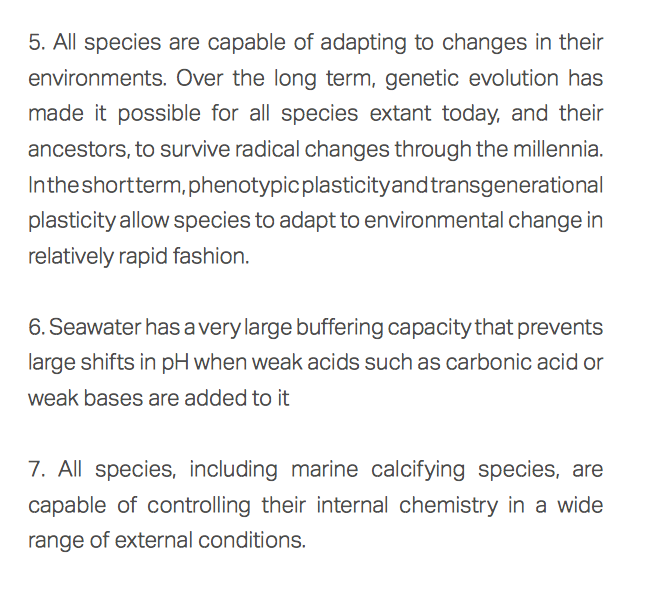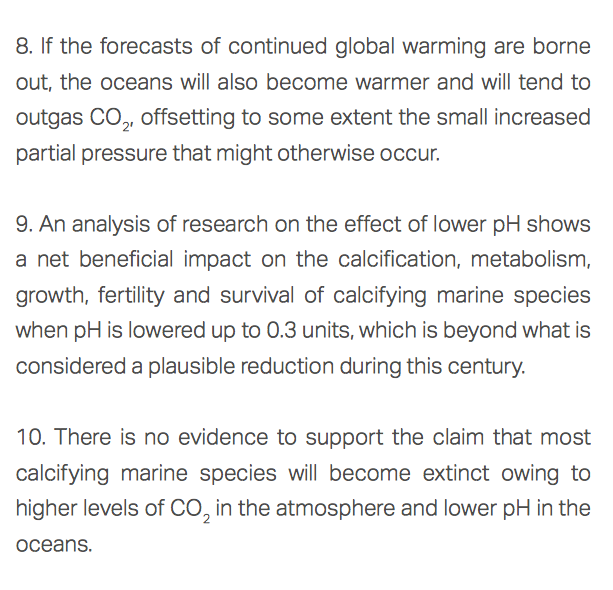Great Barrier Reef scare: exaggerated threats says head of GBR Authority
…Study: Coral Reefs Just Fine If Away From Humans
Coral Reefs Just Fine If Away From Humans
http://sunshinehours.net/2016/03/27/coral-reefs-just-fine-if-away-from-humans/
Reading this article on coral reefs makes me wonder if “climate reporters” have a brain in their head.But then I realized you don’t get to keep those jobs unless you vomit up the propaganda. First it starts in on the doom and gloom stuff about coral bleaching, global warming and El Nino. As ocean warming continues to trigger widespread destruction of coral reefs, a decade-long study of remote islands in the Central Pacific suggests these biodiversity hot spots may nonetheless be able to thrive. With many parts of the globe in the grip of a coral reef bleaching event — fueled in part by El Niño-driven ocean warming — scientists and marine conservation advocates have feared many reefs could suffer irreparable damage and fade from existence in coming decades. Then they get to the good stuff. The results show that coral reefs surrounding remote islands were dramatically healthier than those in populated areas that were subject to a variety of human impacts. “There are still coral reefs on this planet that are incredibly healthy and probably look the way they did 1,000 years ago,” said Jennifer Smith, lead author of the study and a professor at Scripps’s Center for Marine Biodiversity and Conservation. Teeming with sharks, manta rays, jellyfish and sea turtles, these remote locations contrasted starkly with the heavily populated areas, which were encircled by coral reefs covered in murky seaweed and lacking much of the colorful algae that helps to cement a reef. Duh!!!!! It isn’t “global warming” damaging reefs. It is humans and their pollution and rich assholes boats scraping over the reefs!
— gReader Pro…
New publication demonstrates that scientists have routinely exaggerated the “evil twin of climate change” aka ocean acidification
New publication demonstrates that scientists have routinely exaggerated the “evil twin of climate change” aka ocean acidification
A new paper published in the ICES Journal of Marine Science puts the issue of “ocean acidification” to the test, and finds that there has been significant exaggeration in the issue. The paper is: Applying organized scepticism to ocean acidification research “Ocean acidification” (OA), a change in seawater chemistry driven by increased uptake of atmospheric CO2 […]
— gReader Pro…
Major Press Outlets Ignore Story of Billionaire’s Yacht Wrecking Coral Reef
…Co-Founder of Greenpeace Dr. Patrick Moore’s new paper: Ocean ‘Acidification’ Alarmsim in Perspective

 …
…
NOAA scientists admit in private that they can’t name any place affected by ocean acidification
NOAA scientists admit in private that they can’t name any place affected by ocean acidification
There’s the truth, then there’s the whole truth. From a climate expert at NOAA, the study of ocean acidification is so young “they don’t have any data sets that show a direct effect of OA on population health” and they can’t name any place in the world that is definitely affected by it. Steve Milloy at Junkscience.com FOI’d emails among NOAA scientists discussing a NY times op-ed draft.The editor was serving up an apocalyse: …and he wanted all the dirt: Can the authors give us more specific, descriptive images about how acidification has already affected the oceans? Tony Thomas writes that Dr Shallin Busch, who works for NOAA’s Ocean Acidification Program discussed the draft of the article with fellow scientist Ms Applebaum. She warns that they can’t say that OA (Ocean Acidification) was definitely a problem anywhere at the moment: Unfortunately, I can’t provide this information to you because it doesn’t exist. As I said in my last email, currently there are NO areas of the world that are severely degraded because of OA or even areas that we know are definitely affected by OA right now. If you want to use […]Rating: 0.0/10 (0 votes cast)
— gReader Pro…
Greenpeace Co-Founder Dr. Patrick Moore: Why Coral Reefs & Shellfish Will Not Die From ‘Ocean Acidification’
Seawater in the open ocean is typically at a pH of 8.0-8.5 on a scale of 0-14, where 0 is the most acidic, 14 is most basic and 7 is neutral. Ocean acidification from increased CO2 is predicted to make the ocean less basic, perhaps to pH 7.5 under so-called worst-case projections.
How do I know that increased CO2 will not kill the coral reefs and shellfish? Let me count the ways.
First, contrary to popular belief, at 400 parts per million (0.04 per cent), CO2 is lower now in the atmosphere than it has been during most of the 550 million years since modern life forms emerged during the Cambrian period. CO2 was about 10 times higher then than it is today.
Corals and shellfish evolved early and have obviously managed to survive through eras of much higher CO2 than present levels. This alone should negate the “predictions” of species extinction from CO2 levels nowhere near the historical maximum.
Second, due to its high concentration of basic elements such as calcium and magnesium, seawater has a powerful buffering capacity to prevent large swings in pH due to the addition of CO2.This self-correcting capacity of seawater will ensure the pH will remain well within levels conducive to calcification, the process whereby shells and coral structures are formed. Marine shells are largely made of calcium carbonate, the carbon of which is derived from the CO2 dissolved in the seawater.
Third, and most interesting, there are freshwater species of clams and mussels that manage to produce calcareous shells at pH 4-5, well into the acidic range. They are able to do this because a mucous layer on their shell allows them to control the pH near the surface and to make calcification possible beneath the mucous layer.
…
Fourth, ocean acidification proponents invariably argue that increased CO2 will also cause the oceans to warm due to a warming climate. Yet they conveniently ignore the fact that when water warms the gases dissolved in it tend to “outgas”.
It’s the same phenomenon that happens in a glass of cold water taken from the fridge and placed on a counter at room temperature. The bubbles that form on the inside of the glass as it warms are the gases that were dissolved in the colder water. So in theory a warmer sea will have less CO2 dissolved in it than a cooler one.
This …
New climate stress index model challenges doomsday forecasts for world’s coral reefs
New climate stress index model challenges doomsday forecasts for world’s coral reefs
Believe it or not, that’s the actual headline from the Wildlife Conservation Society press release. This model they tout incorporates field data. – Anthony Complex model performs better than common temperature threshold predictions Recent forecasts on the impacts of climate change on the world’s coral reefs–especially ones generated from oceanic surface temperature data gathered by […]
— gReader Pro…
Science -vs- PR hype doesn’t hold up: Satellite images reveal ocean acidification from space
Science -vs- PR hype doesn’t hold up: Satellite images reveal ocean acidification from space
I’m a bit skeptical of this claim, “Satellite images reveal ocean acidification from space” but it may be mostly due to how the press release is written, for example, nowhere is the term pH used in the press release, though it is in the abstract. Curiously, the caption for the graphic provided with the press…
— gReader Pro…
Nature Mag: Ocean ‘calamities’ oversold, say researchers – ‘Team calls for more skepticism in marine research’
http://www.nature.com/news/ocean-calamities-oversold-say-researchers-1.16714?WT.mc_id=TWT_NatureNews…
